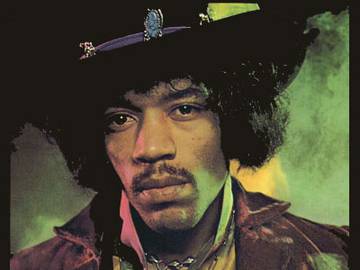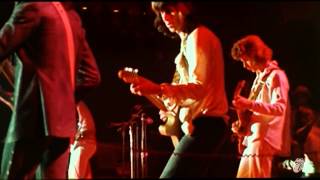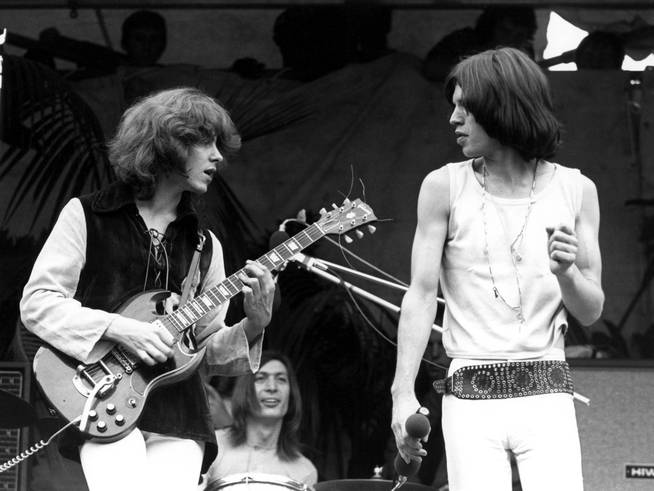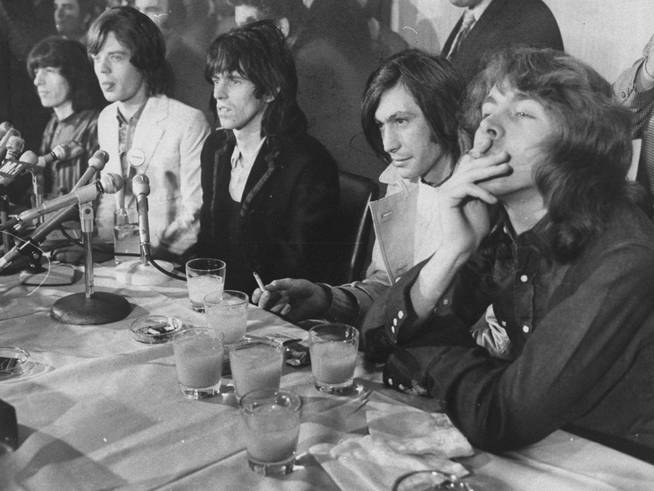On December 12, 1974the Rolling Stones They went to a party in London. Mick Taylor took the opportunity to approach his namesake, Mick Jagger, and announce the scoop: He was leaving the band. The decision was a jug of cold water for everyone. They had planned to start recording a new album in Munich (‘Black and blue’), and the entire band – Mick Jagger, Keith Richard, Bill Wyman and Charlie Watts – He got angry at Taylor for abandoning them and giving them such short notice.
Mick Taylor, playing with the Rolling Stones in Hyde Park / Reg Burkett
I had only been there for five years in which it is considered one of the best rock bands of all time. He had joined in June 1969 as a substitute for Brian Joneswhom his companions had dispensed with because his alcohol and drug abuse they had turned him into too troublesome (less than a month later, They would find him drowned in his pool). And although I was only 20 years old when he became the fifth Stone, His talent left everyone speechless. His fluid and dynamic strumming was impressive, and he adapted to bluesy riffs, country touches or energetic rock and roll, with the precision and confidence of someone twice his age. For Charlie Watts it was “clearly, the best lead guitar the Stones have ever had.”
We recommend you
-

Jimi Hendrix’s last birthday: jam session with Mick Taylor
-

The Rolling Stones announce North American tour in 2024
It was a kind of infant prodigy which the English group relied on to record some of the albums most critically acclaimed. He appeared in ‘It Bleed’ (1969), ‘Sticky Fingers’ (1971), ‘Exile on Main St.’ (1972), ‘Goats head soup’ (1973)… or ‘It’s only rock ‘n roll (1974), the last one in which he participated. His live debut with the group was at a concert in Hyde Park, London, in front of 250,000 people. And he continued playing to thousands of crazy fans. in the most prestigious venues around the world. The last time was in Berlin, on October 19, 1973.

The fact is that Mick Jones left. And his companions, much to his chagrin, let him go. There was no other option. Was a decision without turning back. Mick Jagger thought that His contribution had been enormous. and that he had contributed a way of playing “very fluid and melodic, something that we had never had, and that we do not have now.” He said it in an interview for Rolling Stone in 1995: “Neither Keith nor Ronnie Wood (who replaced Mick) play with that style… it was fantastic for me to work with him, he suited my voice. He was exciting, a great guy…. some people think that “With him we made up the best version of the band that has ever existed.”

Mick JAGGER with Mick TAYLOR, during a show with The Rolling Stones / Peter Sanders
“Mick Taylor and I work really well together…he had a lovely energy,” declared Keith Richards in an interview for Guilar World in 2002. “He had a way of playing Sweetly sophisticated, way ahead of her age. I never understood why he left the Stones. He didn’t want to see him go either, I think… he didn’t want to see him go.” For his part, Charlie Watts noted: “I think we choose the perfect man for the job at that momentjust like Ronnie was the perfect man for the job afterwards. I still think Mick is magnificent.. Without a doubt, musically “We did some of the best things we’ve ever done with him.”
So, one wonders, Why did he leave? Jagger assures that Taylor He never explained the reasons for his departure.. Although the singer assumes that he “wanted to have a solo career,” he believes that The main reason was another: his friction with Richards. “I think that It was difficult for him to get along with Keith.”, he commented in Rolling Stone. In fact, there were times when Keith didn’t even talk to Mick. But that is not the reason Taylor alleges. The guitarist has spent decades justifying and arguing his firm determination.
The virtuoso guitarist was never completely satisfied in the group. She was younger than the rest and was burdened by the fact that was not a founding member. Besides, He played below his level. “I couldn’t believe how bad they sounded,” the guitarist confessed at UCR about his first rehearsal with the Stones. “His timing was terrible.”. They sounded like a typical gang of guys in a garage – out of tune and too loud. I thought, ‘How is it possible that this band can make hit records?’”. And in an interview published in Classic Bands he assured that He never had any intention of committing to the Rolling Stones for a long time.: “I don’t know why, but from the beginning I felt that “I would never stay in the group forever.”

The Rolling Stones, at a press conference. From left to right: Bill Wyman, Mick Jagger, Keith Richards, Charlie Watts and Mick Taylor in New York in 1969. / New York Daily News Archive
There is also the question of credits. There were several songs that Taylor had participated in, but her name did not appear in the credits. As he told NME in 1974, she co-wrote two songs with Mick Jagger – ‘Till the next goodbye’ and ‘Time waits for no one’ – and when he saw the album cover, her name didn’t appear on any of it. of them. The most frustrating thing for him was that Jagger had promised him. “I was bummed that I wasn’t credited on a couple of songs, but that wasn’t the main reason I left.. I imagine that I felt like I had had enough.”

Mick Taylor admitted in the 2012 documentary ‘Crossfire Hurricane’ that his heroin addiction worsened during the five years he lived in the center of the hurricane, experiencing the ‘rock star lifestyle’. He left because he wanted to protect his family from the drug culture that surrounded the gang. He needed to escape from that environment to cleanse himself. To that we should add his constant disagreements: “We used to fight and argue all the time,” the guitarist declared in Mojo. Or his frustration over the confrontations between Jagger and Richards.
As detailed in Eastern Daily Press: “In the period in which I leftthe band was going through one of its low moments. Was an unhappy time for me and, probably, for the rest too. It was right after ‘It’s only rock ‘n’ roll’, the last of the six albums I made with them. The occasional disagreements between Keith Richards and Mick Jagger are public and notorious, and it coincided with one of them. Me and Bill were talking about it. He was very frustrated at that time., but he stayed. This type of friction can produce excellent music, but it was getting harder and harder to bear.”

Mick Taylor was replaced by Ronnie Wood and continued with his career. He never again enjoyed the success, fame or money that the Rolling Stones had offered him.. According to some information in the press, lived on the edge of poverty. But He still maintains that he would make the same decision again. No regrets. Although He didn’t mind joining his bandmates and participating in the 50th anniversary tour between 2012 and 2013., it was something occasional. His thoughts are set in stone: “Personally, it limited me. I’m not saying it wasn’t fun. It was great. But I had to move on and do something else,” he told Rolling Stone. “Asking if I regret leaving the Rolling Stones is asking the wrong question. The hardest question to answer is do I regret joining them?”

![LUCHÈ è il nuovo protagonista di Red Bull 64 Bars [Ascolta il brano]](https://www.wecb.fm/wp-content/uploads/2023/12/LUCHE-is-the-new-protagonist-of-Red-Bull-64-Bars-150x150.jpg)




